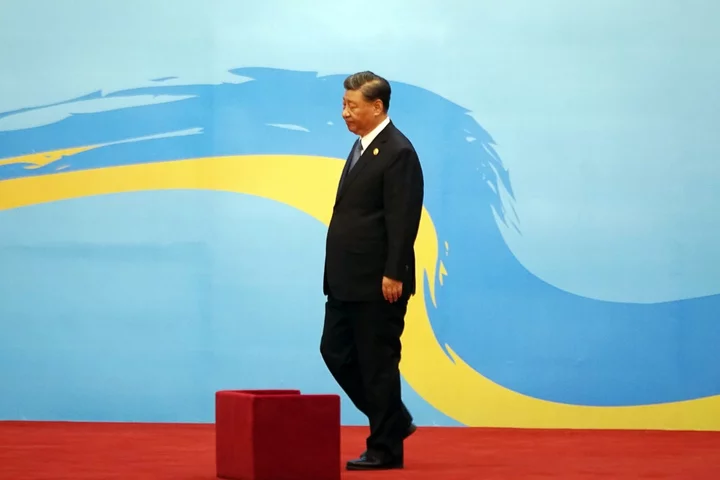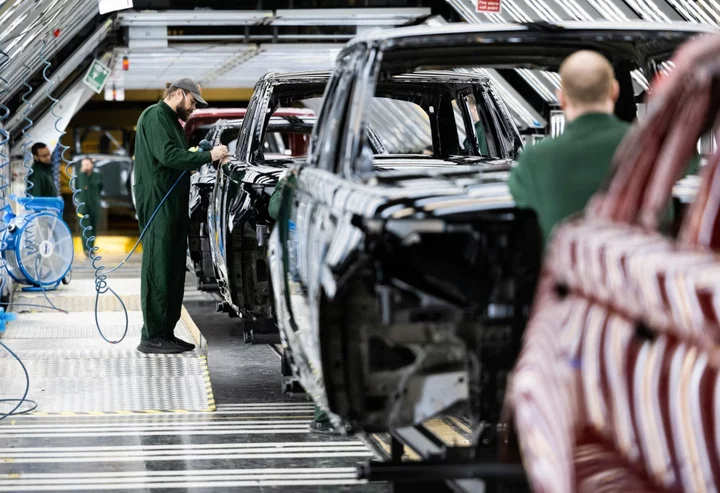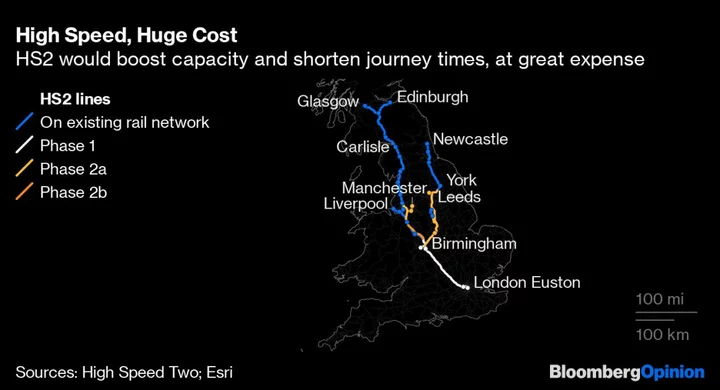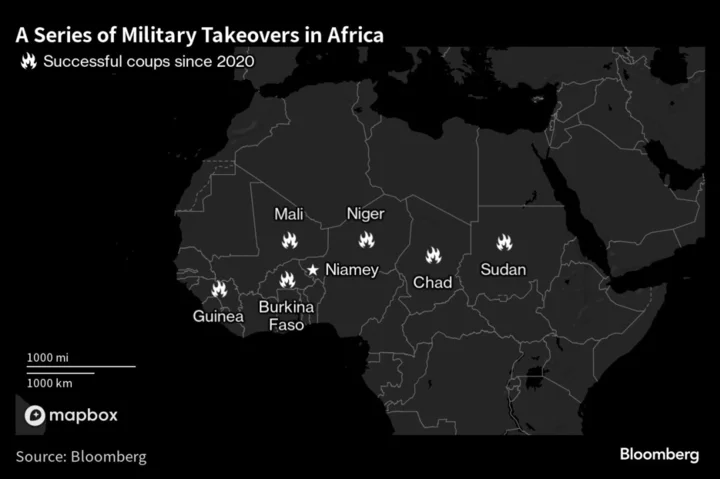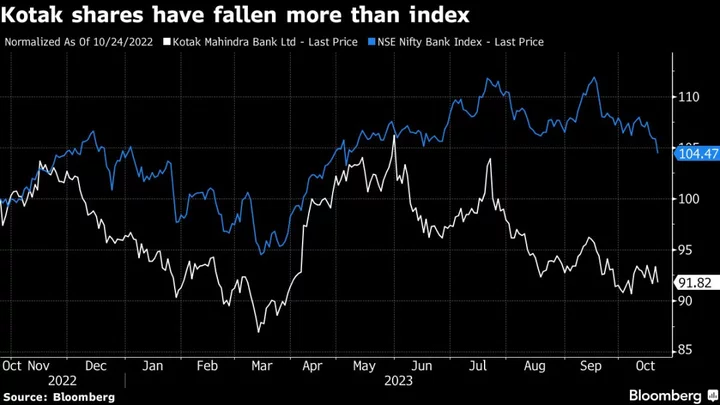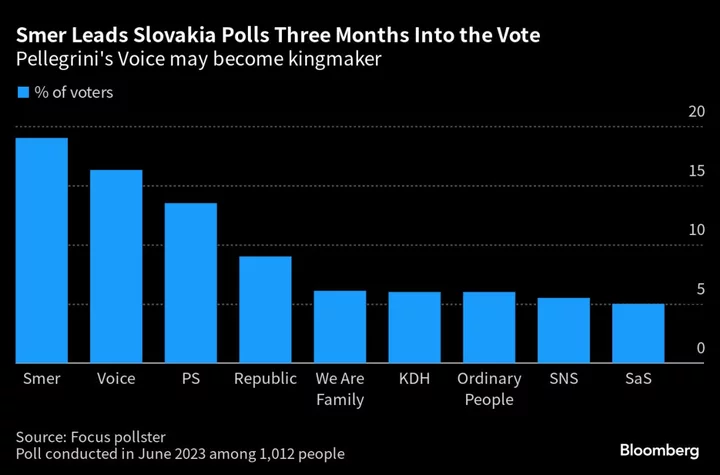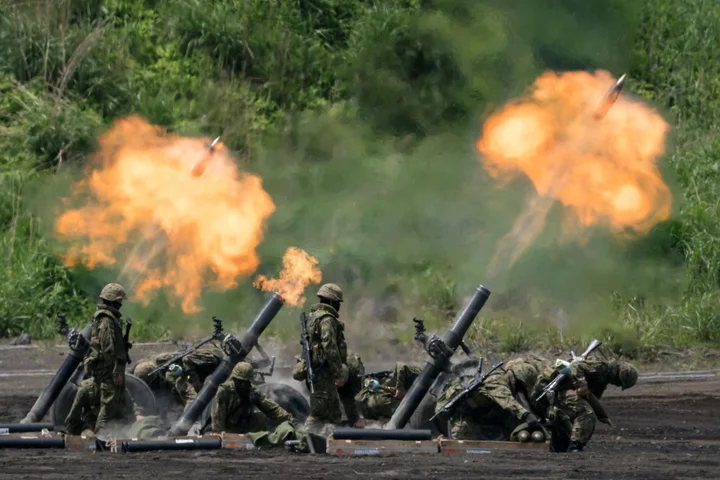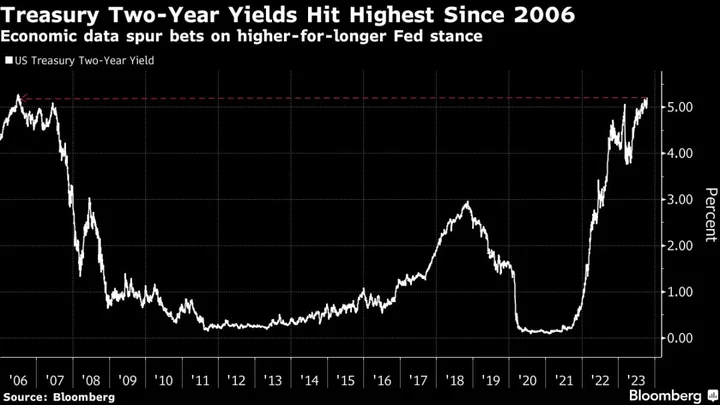President Xi Jinping’s signature infrastructure gambit was supposed to connect Asia, Africa and Europe through a network of railroads and trade deals, cementing China’s global influence. A decade on, it’s run into a diplomatic wall at the European border.
The lack of European leaders at this week’s Belt and Road Forum in Beijing pointed to growing skepticism among Western democracies about what Xi once described as a “project of the century.” Instead of making friends and scoring political points across Europe, the Chinese leader appears to have reformed the initiative as a club for emerging economies known as the Global South that can challenge the US-led world order.
Seven EU nations — Austria, Cyprus, the Czech Republic, Greece, Italy, Portugal and Hungary — sent their chiefs to the forum in 2019, the last time the event was held. Four years later, only Hungary’s Viktor Orban made the trip to Beijing. Italy, the sole Group of Seven member, has told China it plans to drop out of the investment pact entirely.
“This summit is the manifestation that BRI has turned into a Global South initiative, instead of a global initiative,” said Moritz Rudolf, a China scholar at Yale Law School.
Putin’s Presence
Europe is still very much in business with China: Beijing was the largest partner for EU imports of goods last year, and the third largest for exports. But the political costs of mingling too closely with Xi were evident in the Chinese capital this week — especially given the onstage presence of Vladimir Putin, Xi’s diplomatic ally. The Russian president has an active arrest warrant with the International Criminal Court for alleged war crimes in Ukraine.
One EU diplomat who spoke to Bloomberg News cited Putin’s presence at the forum as a main reason the bloc’s institutions are banned from participating. The person requested anonymity as they were not authorized to speak on such issues.
“His very appearance is a challenge to Europe and North America,” said Chong Ja Ian, an associate professor of political science at the National University of Singapore, of Putin’s attendance.
It’s not just the EU that balked at traveling to Beijing for the event. Just 22 heads of state or government attended the forum, compared to 36 in 2019 and 29 in 2017, according to a Bloomberg News review of attendees.
Notable absences included the likes of Switzerland, which isn’t part of the EU but whose president in 2019 attended and signed a memorandum of understanding with China on trade and investment. Singapore’s prime minister also passed on this year’s event after going last time, with the Southeast Asian nation sending its acting head of transport instead.
In Japan’s case, no senior officials from the current government went this year, after then-Prime Minister Shinzo Abe sent a special envoy in 2019. The 2023 event was attended by Yukio Hatoyama, a former prime minister who left office in 2010.
Maintaining Appeal
The smaller guest list doesn’t mean Belt and Road is without influence. The forum maintained its appeal among some developing countries across Asia, Latin America and Africa. Some in Europe are still keen to partner with Beijing, too: Serbian President Aleksandar Vucic flew in for the gathering, where his nation inked a free trade deal with China.
“Belt and Road Initiative has brought a lot of good to our country,” Vucic wrote on Instagram alongside a photo of him and Xi in Beijing. “I’m proud of our friendship.” Serbia has been an EU candidate for years, though is not a member.
In lieu of touting the number of world leaders, China highlighted the sheer amount of attendees. Representatives from more than 140 countries joined the two days of conferences, according to the official state-run Xinhua News Agency, which heralded that support as being able to bolster Beijing’s image as a champion of the developing world.
In a Friday editorial, the People’s Daily — the Communist Party’s mouthpiece — boosted the initiative as one that has attracted more participation because the international community recognizes its cooperative spirit amid geopolitical tensions and risks of conflict.
“The massive American campaign to derail the BRI has clearly failed,” said Kishore Mahbubani, a distinguished fellow at National University of Singapore’s Asia Research Institute and a former Singaporean diplomat. “From many developing countries’ point of view, the Chinese come and provide — very quietly — the results.”
Beijing’s economic clout within the developing world has grown tremendously over the years, after the US pulled back from lending to developing nations during Latin America’s debt crisis in the 1980s. The Asian giant is now the largest official creditor to some poor and developing economies — a status that has at times led to tension with the West, as China and private bond holders have resisted using guidelines established by sovereign creditors.
Participation in Belt and Road can show that China is very much still able to make inroads in the Global South, creating welcome partnerships at a time when the nation is experiencing an economic slowdown at home.
“If nothing else, the BRI anniversary displays the extraordinary convening power of China,” said Richard McGregor, senior fellow for East Asia at the Lowy Institute, who noted the sharp decline in Belt and Road lending compared to its early years. “Still, the size of the meeting obscures the fact that the old BRI is all but dead.”
West Versus Rest
Those who attended the forum didn’t seem bothered by the shifting makeup of the event. For some companies and organizations seeking to profit from Chinese investment, the alternative world order pitched by Xi and Putin promised a space for opportunity that may be unthinkable elsewhere.
“We seek more investments, and we hope during our visit we will meet the private sector and other sectors here in China,” said Alhaj Nooruddin Azizi, the minister of industry and commerce for the Taliban government of Afghanistan. He attended the forum’s opening ceremony at the Great Hall of the People on Wednesday.
He said his government wanted to prioritize investment from China in agriculture, mining and energy. The Taliban is struggling for international recognition as no country — including China — recognizes it as the legitimate government of the country after returning to power in 2021 following the US withdrawal. Aid that made up the bulk of the country’s finances has dried up, and the US has frozen $9.5 billion in assets belonging to the Afghan central bank.
Others pointed to China’s ability to lead in railway construction and development as a major draw, particularly for smaller economies with limited access to major ports.
“Sometimes the enemy isn’t just war. Sometimes poverty is also a great enemy,” said Jacob Hlangabeza Hara, the minister of transport and public works in landlocked Malawi. “Every alternative that comes on the table to make sure that we improve the livelihood of our communities and our population. That’s what counts.”
--With assistance from Rebecca Choong Wilkins.
(Updates with details from a People’s Daily editorial.)

